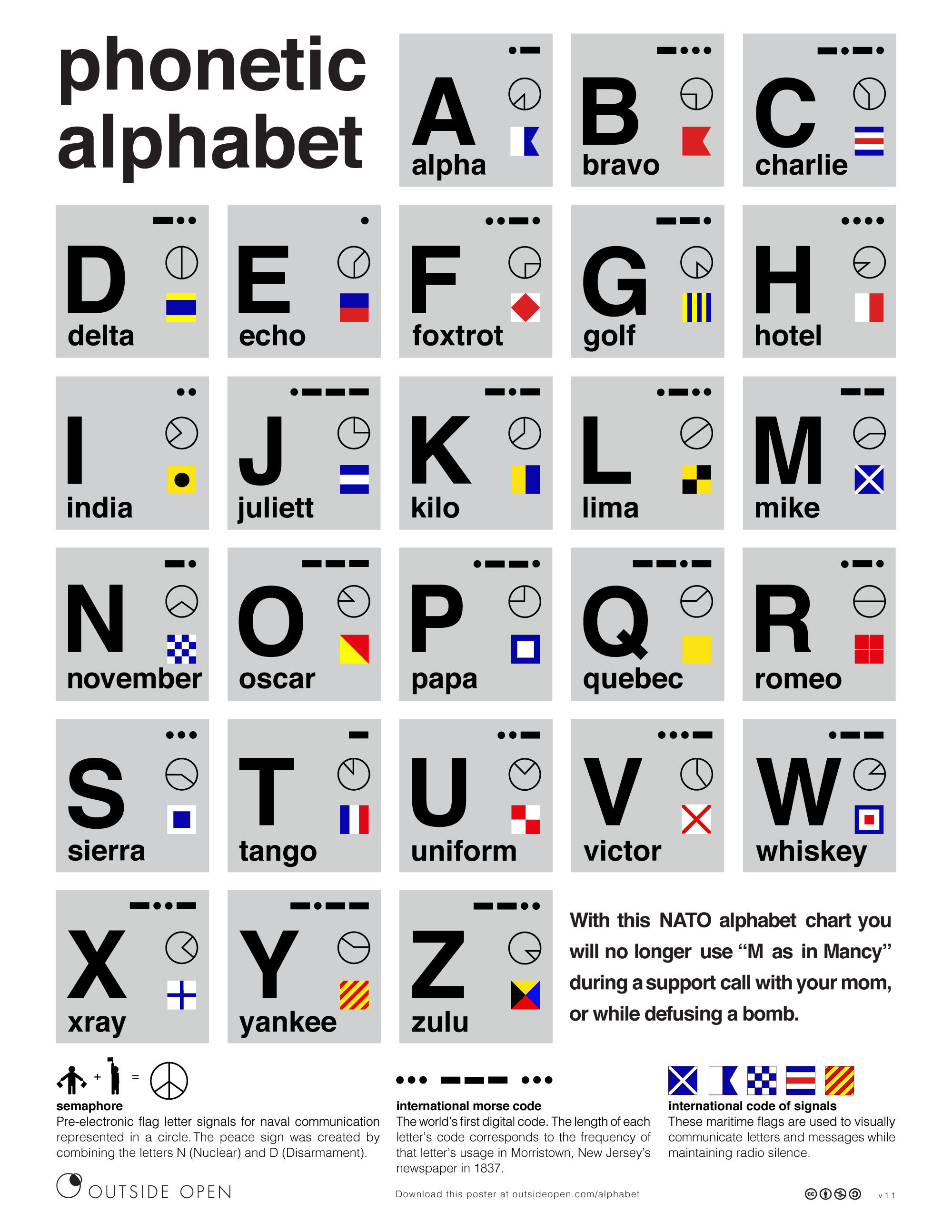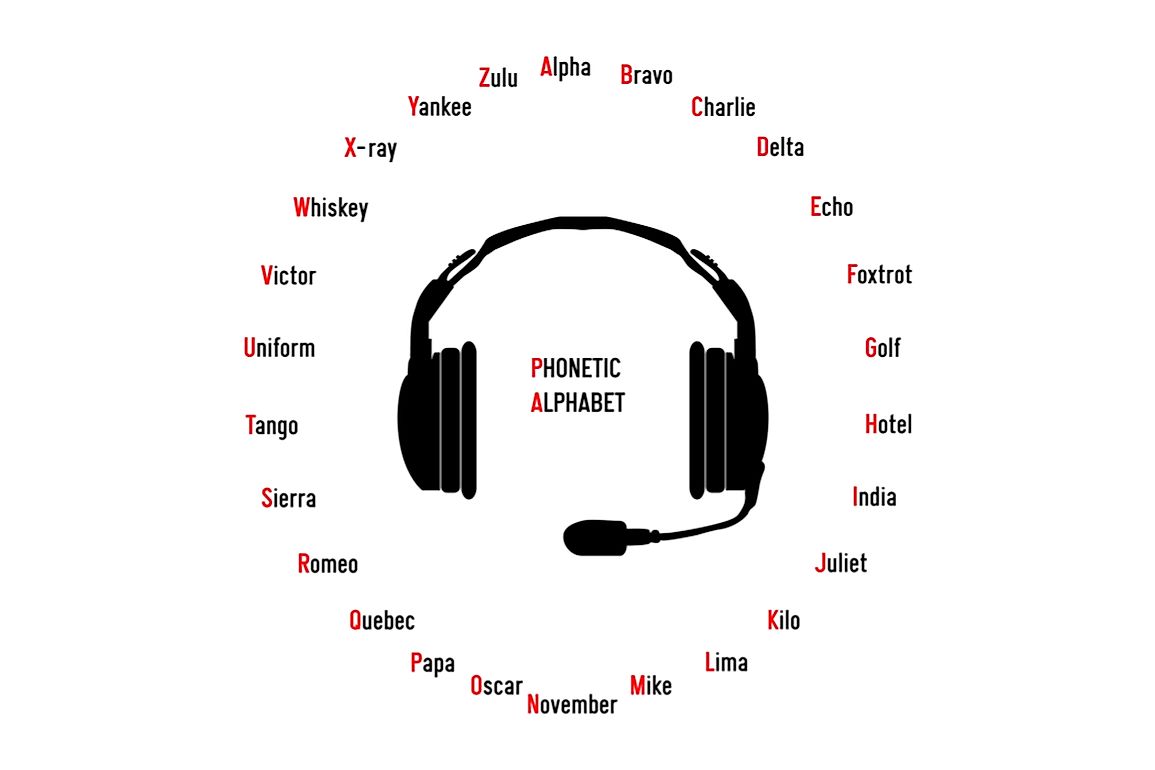

- #Icao radiotelephony spelling alphabet license#
- #Icao radiotelephony spelling alphabet plus#
- #Icao radiotelephony spelling alphabet series#
#Icao radiotelephony spelling alphabet series#
The origin of the name Adam-12 from the television series of the same title comes from this alphabet. In like manner, for clarity, the use of "niner" instead of "nine" for the numeral 9 prevents confusion with the numeral 5, which can sound similar, especially when communications are garbled. military alphabet, "A" was indicated by Able, which does start with a long "A", but has since been changed to Alpha (also spelled Alfa, particularly outside the English-speaking countries). With the exception of Uniform, none of the initial vowels in the NATO alphabet is like this. However, spelling alphabets seem to rarely use initial long vowels. The phonetic words Ida and Union feature this same advantage.

With the ultimate goal of clarity, especially in circumstances where signals can be garbled, the use of the word Ocean seems to be advantageous in the radio communication of the letter "O" because it begins with the long, clear vowel "O". The Metropolitan Police Department (Washington DC), uses the APCO alphabet, however the California Highway Patrol, Las Vegas Metropolitan Police Department, Los Angeles County Sheriff's Department, San Jose Police Department, San Francisco Police Department, and other agencies across the West Coast and Southwestern United States, as well as the use versions that allocate Yellow to "Y" and other agencies' versions allocate Baker or Bravo to "B", or use variations that include Nancy instead of Nora for "N", Easy instead of Edward for "E", or Yesterday for "Y". There are several local variations of this system in use. NI-YEN (with a strong N at the beginning, a long I and a well sounded YEN) SEV-VEN (with a strong S and V and well-sounded VEN) VIE-YIV (with a long I changing to short and strong Y and V) TH-R-EE (with a slightly rolling R and long EE)įO-WER (with a long O and strong W and final R Law enforcement phonetic spelling alphabets The APCO radiotelephony spelling alphabet and its variations represent the letters of the English alphabet using words as follows: law enforcement radiotelephony spelling alphabets ĪPCO's Project 14 updated the definition of Ten-codes, and also adopted the international radiotelephony spelling alphabet for use by law enforcement nationwide.
#Icao radiotelephony spelling alphabet license#
For example, the license plate "8QXG518" might be read by a civilian as "eight cue ex gee five eighteen" but with accuracy being paramount, the police dispatcher would say "eight queen x-ray george five one eight." Despite the development in 1941 of the Joint Army/Navy Phonetic Alphabet and its replacement, circa 1956, by the NATO phonetic alphabet (currently used by all NATO armed forces, civil aviation, telecommunications, and some law enforcement agencies), the LAPD and other law enforcement and emergency service agencies throughout the United States continue to use their traditional system.
#Icao radiotelephony spelling alphabet plus#
The questionnaire solicited suggestions, but also included the existing Western Union and Bell Telephone word lists, plus another list then in general use by a number of police stations. The list was based on the results of questionnaires sent out by the Procedures Committee to all zone and interzone police radio stations. By this point, APCO President Herb Wareing "came out in favor of a standard list of words for alphabet letters, preferably suitable for both radiophone and radiotelegraph use." The APCO first suggested that its Procedure and Signals Committee work out a system for a "standard set of words representing the alphabet should be used by all stations" in its April 1940 newsletter.

2 Replacement with international spelling alphabet.


 0 kommentar(er)
0 kommentar(er)
